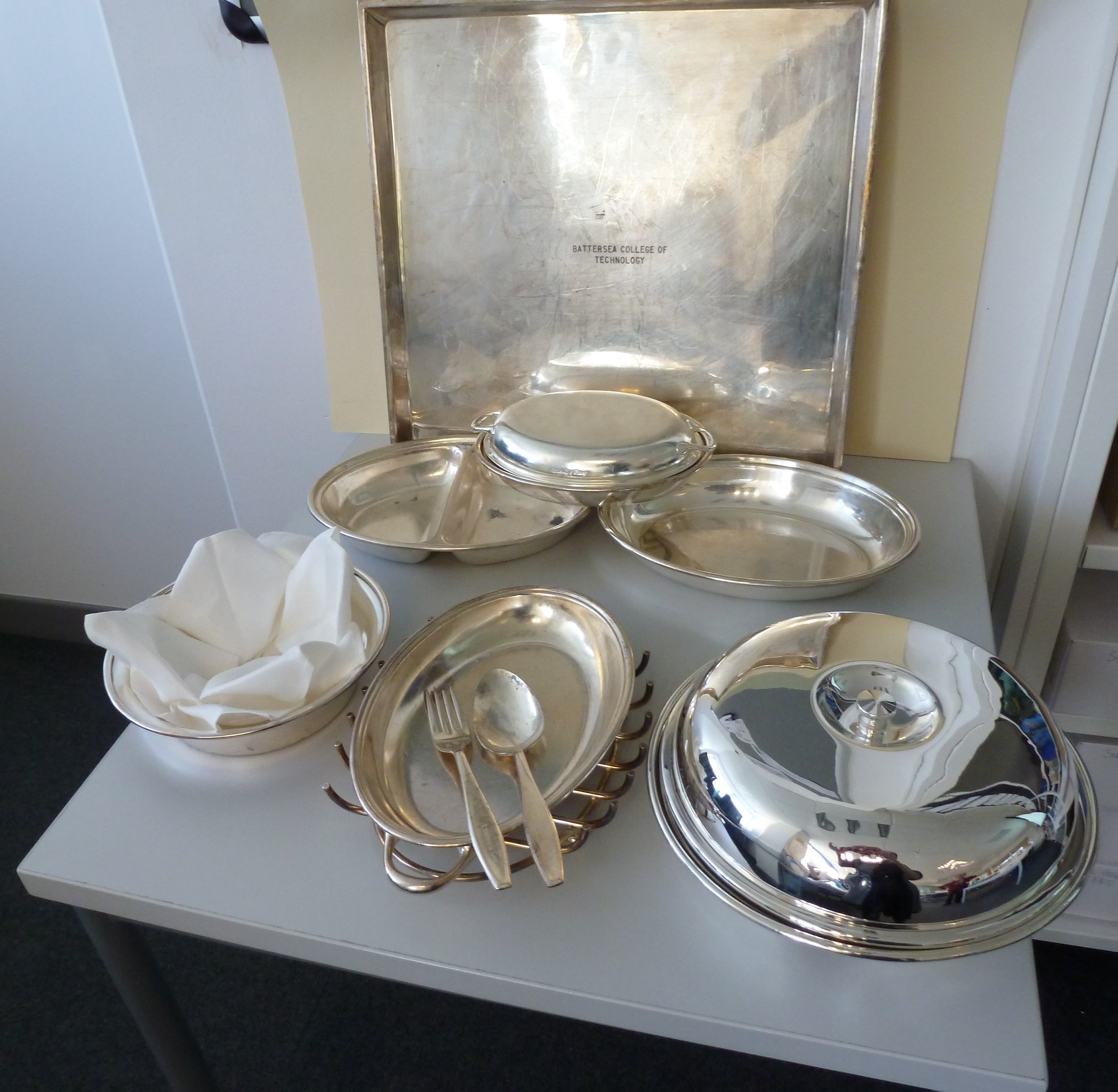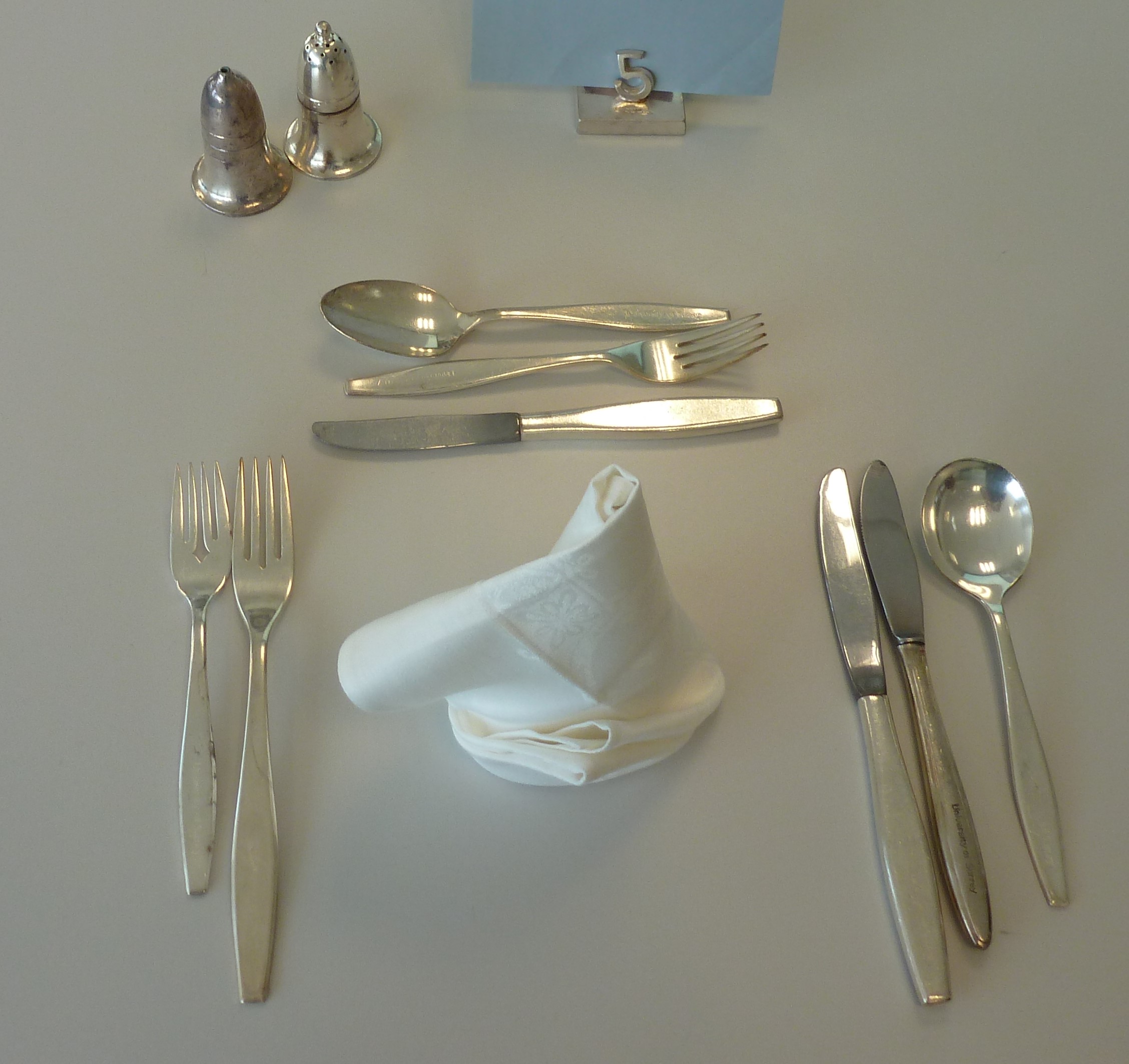Silver service gives way to gold standard food thanks largely to 5-star management education
A crisis is rarely solved quickly and education is always a long-term solution.
The problems underlying the hotel and catering industry were deep-rooted. Factors included:
- Class
- The privations of the first half of the 20th century:
- The First World War
- The Depression of the 1930s
- The Second World War and its aftermath, including food rationing
The English attitude to eating away from home was also particularly important. As the late Mr. John Longden, General Manager of the Café Royal in Regent Street, London in the 1960s explained to Hotel and Catering students:
‘The English are more interested in the event than the food – hence the popularity of banquets. A Frenchman is nervous if there are more than a dozen people at a meal – for fear of what will be the effect on the food. The English are more than happy to dine with several hundred’ [‘Principles of Catering’ lecture by John Longden, Visiting Lecturer 1966-1967, University of Surrey, attended by Harriett Nailon]
The English took pleasure in the experience – the company, conversation, and the non-food items such as the silver cutlery, the linen table cloths and napkins, and the novelty of being served. The details of the event were the most enjoyable part and it did not matter if the food was sub-standard.
The courses at Battersea Polytechnic and the technical colleges had to therefore address this conundrum of the English attitude to food, and try to drag the industry into the 20th century with studies in accounting, economics, statistics, food science, nutrition, marketing, and basic management theory and skills. At all the colleges and at Battersea the food studies centred round a training restaurant and kitchen.
At Battersea in the 1950s and 1960s the food produced was close to an abbreviated Ritz menu by Auguste Escoffier c.1906 [Escoffier (1846-1935) was an influential celebrated chef and culinary writer] and the table settings and waiter service would have impressed King Edward VII. Food was delivered to each diner by ‘silver service’ so they could have exactly what they wanted.

(ref no SV/7/5)
Put simply, 1950s hotel and restaurant education preserved many of the Victorian/Edwardian tastes and standards still prevalent in the industry and admired by many of the general public. If the college courses were supposed to be modernising the industry why, it might be asked, did they preserve so many ‘old-fashioned’ ideas? There were two main reasons:
- The industry was very sceptical about college education. Most people, managers included, had learned ‘on the job’
- It was believed that to train effectively, ‘start with the known move to the new’ to borrow a phrase from a 1969 Hotel and Catering Industry Training Board course. [From Training course attended by Harriett Nailon at Sheffield Polytechnic]
What were these Victorian/Edwardian standards?
- Continuing reverence for ‘upper class’ habits, e.g. preference for French cuisine, which dated from young aristocrats doing the ‘Grand Tour’ in the 18th and 19th centuries
- The nouveau riches and upper middle classes might not have a French chef at home but they could experience French cooking when eating out
When eating out people would ‘trade-up’ if possible – especially if it was a ‘formal do’. For example a suburban golf club would offer members soup, sandwiches, and cheeseboards in the clubhouse with daily choices written on a blackboard over the bar, but their annual ‘Ladies Night’ would be at a West-End hotel with a menu in French.
But it was still the event which took centre-stage. The club captain and committee officials would be at the top table, and more senior/important club members near to them. Each diner would have a full set of silver cutlery laid out before them and a napkin in a fancy fold. The aristocratic atmosphere, the importance of who sat where, and who was mentioned in the chairman’s address were the significant things. If the food was good that was a bonus, the main attraction was the experience itself.

(ref no SV/7/1)
At some indeterminate point in the late 1960s/early 1970s the experience vs food balance began to change and the English gradually turned into the foodies they are today. How and why did the balance alter? Factors within the Hotel and Catering industry include:
- The impact of professionally trained managers who understood marketing, which led to the rise of speciality restaurants
- The influence of nouvelle cuisine/fusion concepts pioneered by Roger Verge in France in the 1970s: lighter and more delicate food and pretty presentation
As food itself became the main attraction there was increased attention to presentation. This led to a change in service at the table with plate service becoming the norm, which meant a decline in need for skilled waiting staff capable of silver service. This also meant there was less contact between the customer and server so the ‘experience’ component diminished – the emphasis was on the food.
Factors outside the industry include:
- Increasing affluence for many
- General societal changes – less formality, less deference, and a ‘celebrity culture’ where ordinary people become famous for being famous
- Growth of foreign travel
- Influence of the Good Food Guide and other food guides
- Influence of television and the rise of the celebrity chef
- Newspapers and magazines devoting more and more pages to food
- Anti-smoking legislation – if people cannot smoke in a restaurant the food tastes better for both smokers and non-smokers
- The internet
- Improved and more varied meals in the home – when Marks and Spencer started selling food (including ready meals like lasagne) in the early 1970s all the other food retailers started to improve the variety and quality of their goods
By the dawn of the 21st century English food was no longer looked down upon or the subject of jokes, and many English chefs were world famous. The average English person now seems interested in good food, and indeed some are food fanatics!
